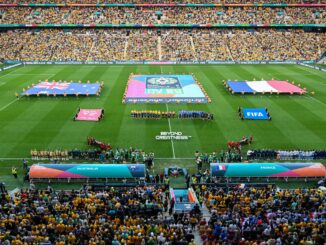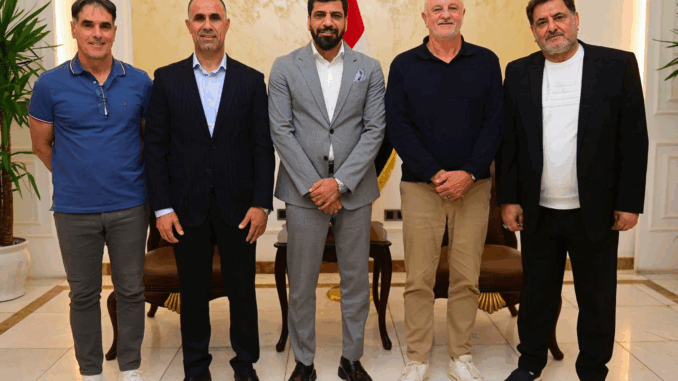
In a surprise turn of events, Iraq have looked to former Australia boss Graham Arnold in hope of helping the Lions of Mesopotamia to their first World Cup in 40 years.
The 61-year-old arrived in Baghdad on Friday evening and will be unveiled as Iraq’s new coach at a press conference in Baghdad on Saturday afternoon.
Iraq, who sacked Spaniard Jesús Casas after a shock 2-1 defeat to Palestine in their last World Cup qualifying game in March, face a difficult task in reaching the 2026 FIFA World Cup with two games left to play.
They are currently third in Group B and play leaders Korea Republic and second-placed Jordan in their final group matches, with only victory in both matches making automatic qualification a certainty for the Lions.
Casas sacked
The 61-year-old Graham Arnold replaces Jesús Casas, who had been in charge for over two years after his appointment in late 2022. The Spaniard had led Iraq to its first Gulf Cup title in 35 years in Basra, as well as beating Japan at the AFC Asian Cup last year before bowing out of the competition in the Round of 16 after ten-man Iraq lost 3-2 to Jordan despite being 2-1 up in stoppage time.
Under Casas, Iraq looked to have started-off well in the Third Round of the 2026 FIFA World Cup qualifying campaign, however recent lacklustre performances and constant changes to the team’s starting line-up led to criticism being laid at the coach, and after a poor run of results, the worst of his tenure, with three defeats in the last four matches and managing just a single point from their last two qualifiers, the 51-year-old, who was once assistant to Luis Enrique at Barcelona and with Spain, was let go.
The initial favourite to replace Casas had been 55-year-old Moroccan Lhoussaine Ammouta, who, as coach of Jordan, had beaten Iraq at the AFC Asian Cup and masterminded Al-Nashama’s passage to their first-ever final.
Ammouta’s name had been linked to the Iraq job just hours after Iraq’s defeat to Palestine in Amman.
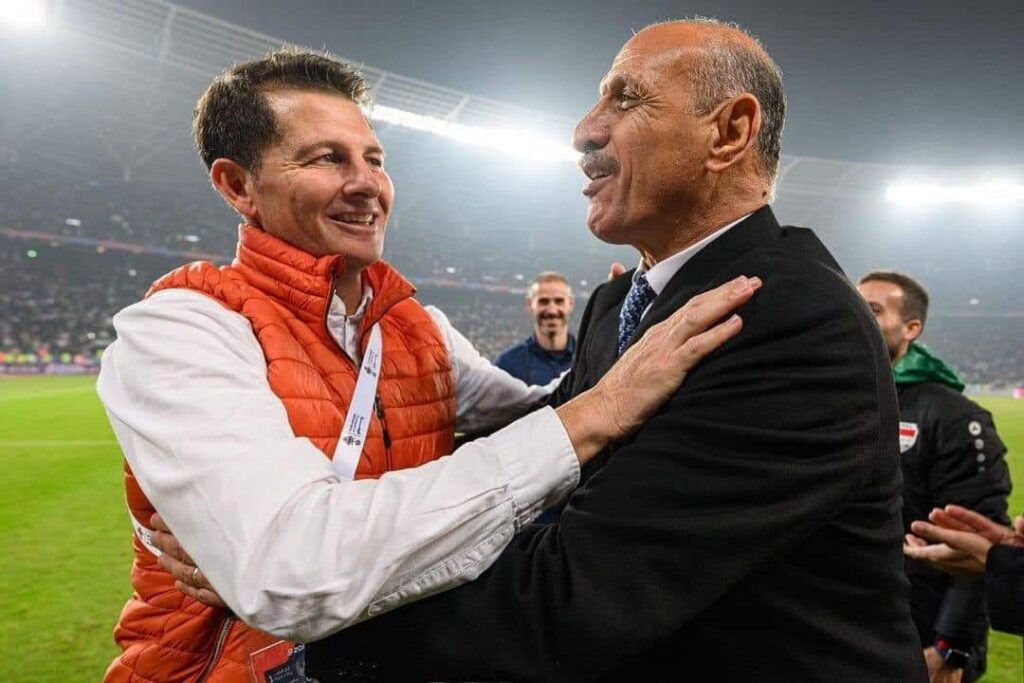
The Iraqi FA president Adnan Dirjal, who knew the Moroccan well as he had coached him at Al Sadd, believed Ammouta was the best option to get them to the World Cup, especially with Iraq playing both Korea and Jordan in their final group matches.
The thinking behind it was that Ammouta, the man who had outclassed Korea in the Asian Cup semi-finals, was also the coach who knew more about Jordan than anyone, having putting together the side, currently led by compatriot Jamal Sellami, in his year at the helm of the team from 2023 to 2024 before he left by mutual consent. Iraq hoped the appointment would give them the advantage to qualify for the World Cup ahead of either Korea or Jordan.
The problem, however, was that Ammouta was already contracted with UAE Pro League club Al Jazira until the summer of 2026. The Iraq FA approached the Emirati club over the possibility of signing the coach on a 45-day ‘loan’ for the two matches, but after initial reports of a deal having been agreed between all parties, it fell through at the last minute, with Ammouta apologising and deciding to honour the remainder of his contract at Al-Jazira.
“We respect his decision and say, ‘Whatever God wills, happens,’” the Iraq FA president declared, as the FA turned to Plan B.
Search for a new coach
The FA drew up a shortlist of six candidates from which to pick their next coach. The list included Lhoussaine Ammouta, Spain’s U-21 coach Santi Deni, Argentine Héctor Cúper, formerly coach of Syria and Egypt coach, Bahrain’s former coach Hélio Sousa of Portugal, Kuwait’s Argentine coach Juan Antonio Pizzi, and Djamel Belmadi, who had previously manage Algeria and Qatar.
Another name mentioned was former Iran and Egypt coach Carlos Queiroz, but Adnan Dirjal reportedly vetoed the appointment after reportedly being told privately that the 72-year-old Portuguese coach was “narcissistic, moody, and caused problems.” The name of Qatar’s 2023 Asian Cup-winning coach Bartolomé “Tintín” Márquez López had also been discussed.
The main front-runners for the job were Héctor Cúper and Hélio Sousa.
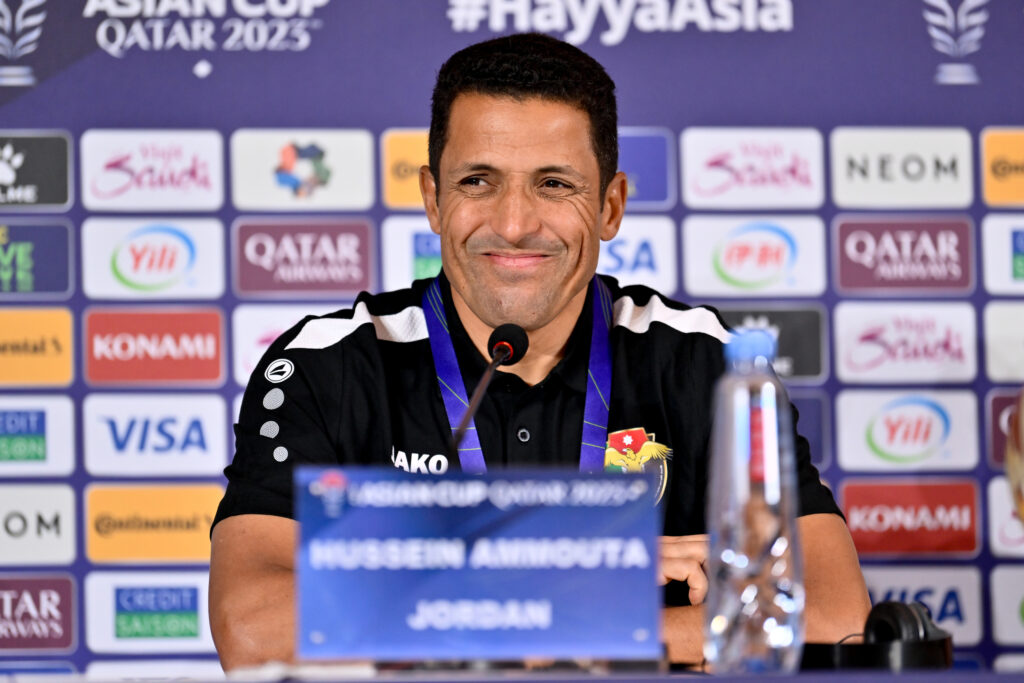
Cúper had led Egypt to their first World Cup in 28 years but had resigned from in his last job with Syria after failing to reach the Third Round of World Cup qualifying.
The 69-year-old had demanded a four-month contract worth $500,000 (USD), that would run-up to the Fourth Round play-off in October, while there had also been a difference in opinion on the World Cup bonus if Cúper managed qualify. Another condition the coach had stipulated was that if he qualified, the Argentine wanted to coach Iraq at the World Cup finals.
The other younger candidate, 55-year-old Hélio Sousa had spent four years as coach of Bahrain, winning 2019 WAFF Championship in Iraq and the 24th Gulf Cup in the same year. At the tournament in Doha, the Portuguese coach impressively rotated 11 players in each game to help Bahrain win the first Gulf Cup title in the nation’s history, with analysts and the media lauding praise on the coach over the way he had won the competition.
The FA had formed a five-man committee, headed by its president Adnan Dirjal, to select the new coach. For two days, they met at the FA’s Professional League headquarters in Baghdad, discussing the strengths and weaknesses of the two coaches and even held Zoom calls with both candidates.
On the third day, to avoid the growing media attention, with reporters continuously swarming FA officials as they entered and exited the FA’s headquarters, the meeting was moved to the FA president’s home.
Arnold comes out of the blue
At the meeting on 1 May, when officials were deliberating on whether to appoint Hélio Sousa, the FA president received a WhatsApp message from Zaid Yousif Jwaida, who runs the Iraqi Professional Sports Gate social media site and resides in Pennsylvania, United States. He informed him that Australia’s former coach Graham Arnold was interested in the Iraq job. The FA president’s response was: “He’s a good coach.”
To get a better understanding of the coach from people who had worked with him, Adnan Dirjal spoke to Football Australia’s Baghdad-born president Anter Isaac, who described Arnold as a competent coach. He also added that he thought the 61-year-old would be willing travel to Iraq despite warnings from the Australian Foreign Ministry against its citizens traveling to the country, even with the improved security situation in Iraq.
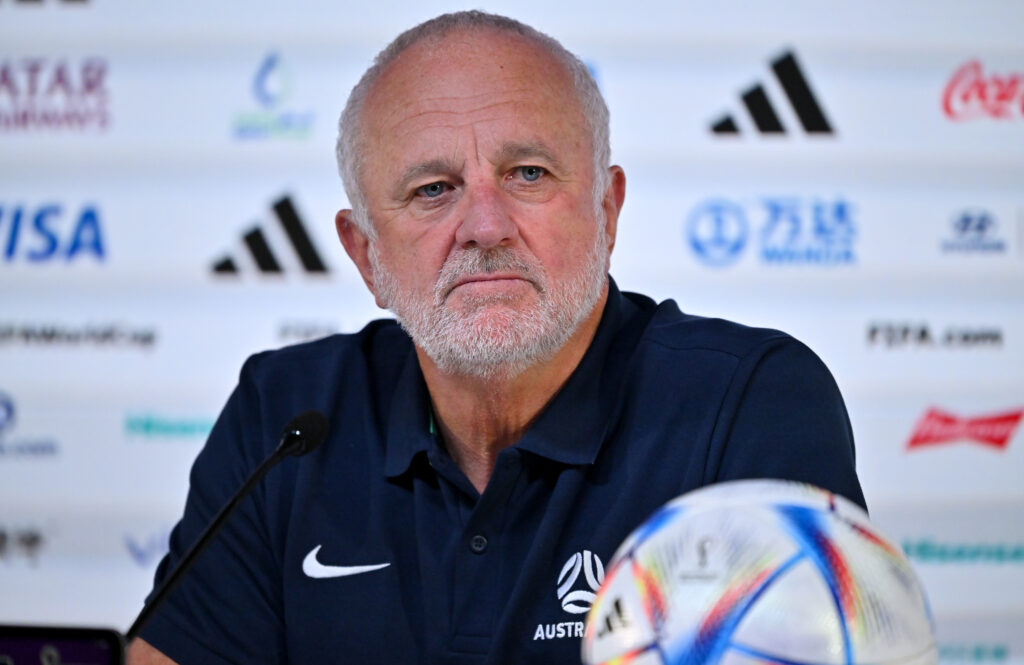
From there, the Iraq FA began negotiations, speaking with the Australian through a Zoom call. After two days of talks, an agreement was reached, and on 5 May, at 02:00am local Baghdad time, the FA sent over a contract to the coach to sign. Forty-eight hours later, FA members agreed on the appointment of Arnold as Iraq’s new coach.
During talks, the Australian coach had only one request, asking to add a local assistant to his technical staff, given the short period remaining before the qualifiers. However, iraqfpg.com reported that the FA president rejected his request, stressing that the FA would support the coach in every way possible without the need for a local assistant.
No reason was given for the FA president’s refusal, but the FA might have wanted to avoid the failed experiment under Dick Advocaat and Željko Petrović, where the team manager and local assistant had a big influence in which players were selected or omitted.
The Iraq FA seemingly wanted, like under the previous coach Casas, to give Arnold and his training cadre the freedom to look at the levels of the players with their own eyes and make their own judgement on which players they wanted to select.
The debate in Iraq around local coaches has become a contentious one, with some Iraqi coaches claiming the Iraq FA president had been against appointing local coaches to supervise Iraq’s national teams, preferring to look to foreign trainers to improve the standard of football in the country.
Only recently, the FA president received backlash for appointing 31-year-old Spanish coach José María Zarco Martín to oversee an all-Spanish staff to supervise the Iraq U17s, when they already had a local coach, Ahmed Kadhim, who managed the U17s.
Iraq FA officials themselves claimed they had not been notified, nor met to discuss the appointment, it was not even announced to the media, nor was the news published on the FA’s website or social media sites. The decision and appointment by the FA president had been made unilaterally, completely going over the heads of the FA’s other members.
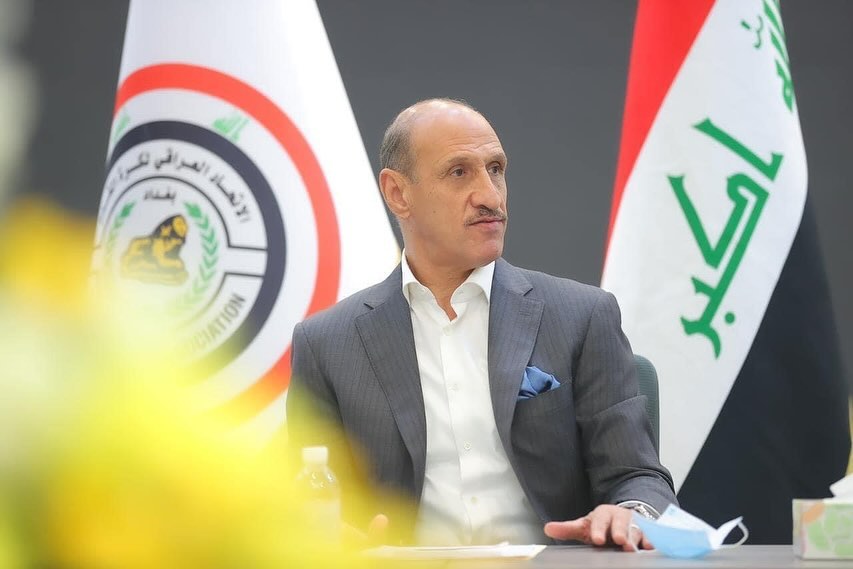
According to reports in the Iraqi media, Arnold and his training staff are expected to sign a seven-month contract which will run up to the 2025 FIFA Arab Cup in Doha, which will take place from 1-18 December. If Arnold manages to qualify for the 2026 World Cup his contract will be extended until the end of the 2027 Asian Cup, and worth a reported $1.2m USD.
Arnold will have a seven-man technical staff working with him, which will include two assistants, a goalkeeping coach, a conditioning coach, an expert in sports science, a technical analyst and an advisor. The coach also requested the appointment of Iraq’s former team manager Ghaith Muhanna, who resides in Australia, as team coordinator to serve as a link between the players and the staff.
While the names of Iraq’s new staff have not been revealed to the media, Dutchman René Meulensteen, who has been Arnold’s right-hand man since 2018, is expected to his first assistant, while the former head coach of the Newcastle Jets, Rob Stanton, travelled to the Iraqi capital alongside Arnold and looks set to be part of his staff.
A long desire to coach Iraq
It is not the first time Graham Arnold had expressed a desire to manage Iraq. In early 2018, when he was managing Sydney FC, Iraq’s Al-Sabaah newspaper reported the Australian had been closely following the Iraqi team at the 23rd Gulf Cup in Kuwait through analytical and data sites.
Arnold had also watched Iraq during the 2018 World Cup qualifiers, particularly the home and away matches with Australia, stating that he saw Iraq as “a stubborn team,” according to Reda Al-Taay, the brother of current Iraqi and Western Sydney Wanderers midfielder Mohamed Al-Taay, who was then working as a football agent.
The Australian expressed his desire to coach the Lions of Mesopotamia and lead them at the 2019 Asian Cup in the UAE. At the time, the Iraq FA had been looking for a new coach after deciding against renewing the contract of Basim Qasim after losing to the UAE on penalties in the Gulf Cup semi-finals.
Al-Taay stated the Australian coach had been willing to reject any contract renewal with Sydney FC if he received the green light from the Iraq FA, however, nine months later, they decided to appoint Slovenian Srečko Katanec, by which time, Arnold had already been named Australia’s head coach.
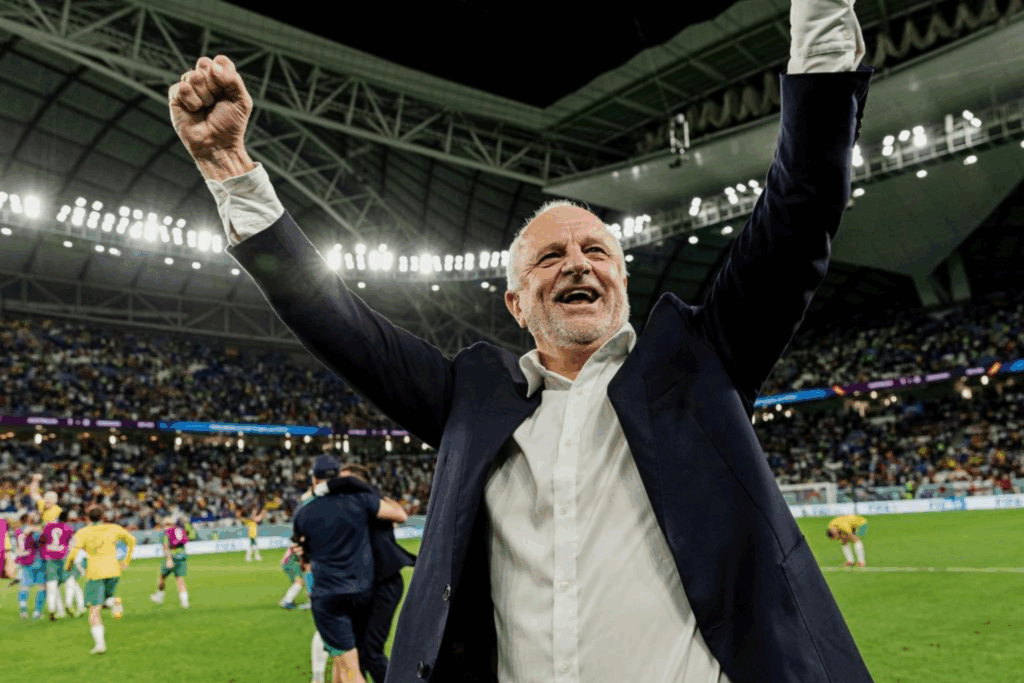
Over his long coaching career, Arnold has had links to Iraq. Coincidently, Arnold’s first coaching role in 1989, when he was only 26, came as caretaker coach of Sydney Croatia, replacing ex-Australia goalkeeper Ron Corry, who had been in goal in Australia’s 3-1 win over Iraq during the 1974 World Cup qualifiers, Iraq’s first-ever World Cup qualifier, which was also played in Arnold’s birthplace of Sydney.
While Arnold has come up against Iraq only once as Australia’s coach, it was in Iraq’s first and most famous victory over the Socceroos, the 3-1 win in the group stages of the 2007 Asian Cup, which inspired the Lions of Mesopotamia to lift the trophy. He had also been on the bench against Iraq as an assistant to Frank Farina and Pim Verbeek.
The first time he came up against Iraq was a year after the 2003 US-led invasion, in the quarter-finals at the 2004 Olympic Games in Patras, where an Emad Mohammed overhead kick saw a war-torn Iraq beat Australia 1-0 to advance to the semi-finals.
A year later, he was on the bench in Australia’s 2-1 win over Iraq in a friendly in Sydney, and Australia’s 2010 World Cup qualifiers against Iraq, winning the first game 1-0 in Sydney before succumbing to a defeat by the same scoreline in Dubai.
Arnold also faced Iraq as Australia’s U-23 coach, drawing 0-0 in Doha and winning 2-0 in Gosford on the way to qualifying for the 2008 Olympic Games in Beijing. The final game came at the 2020 AFC U23 Championship in, where Australia and Iraq drew in a 1-1 stalemate.
It would seem that the Australian coach had always had great respect for Iraq as a football nation, and even in 2018, Al-Taay stated that the coach had expressed admiration for the skill of Iraq’s players, which he noted distinguished them from the rest of the Asian continent.
The agent quoted the Australian coach saying Arnold was very keen to lead Iraq, because the team included a large group of skilled players, as well as their ability to act and make decision in difficult situations, having achieved a milestone at the Asian Cup in 2007 and 2015.
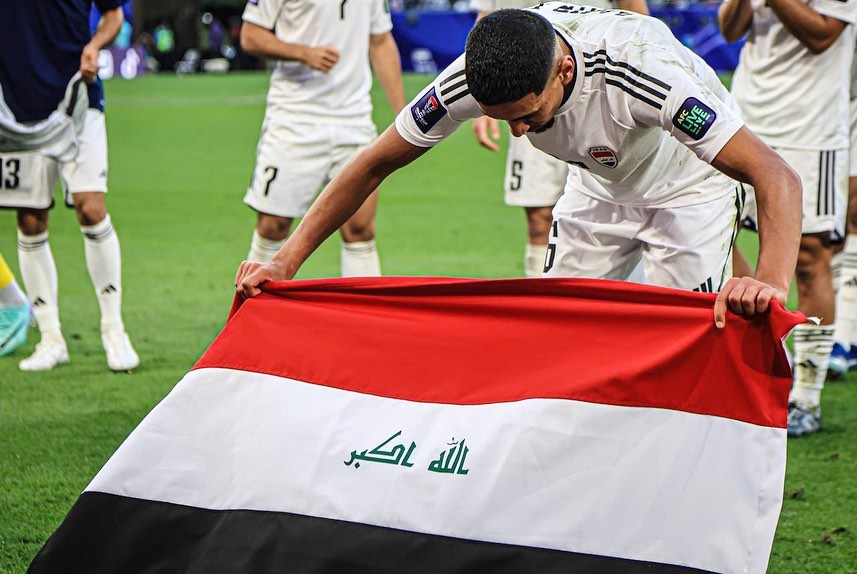
Preparations
After the Iraq FA finalised its contract with Arnold following a late meeting of its executive committee on Monday night, it wanted to fulfil all of the new coach’s requests and provide a suitable working environment, understanding time was of the essence and that the task ahead would be difficult.
The first decision the FA took was to suspend the Iraq Stars League for a month from May 20, after the end of the 34th round of matches, coinciding with the arrival of the new coach and his assistants in Iraq, who are expected to attend two rounds of Iraq Stars League matches to look at some of Iraq’s national team players.
Even before arriving in Baghdad, the new coach had instructed his staff to put together technical and analytical reports on the Iraqi team and its players, in addition to Iraq’s opponents, South Korea and Jordan.
Iraq will hold a short training camp in the city of Basra, before flying out to Doha, where they will play the first of their warm-up matches against Uzbekistan on 25 May, and then face China in Basra on 1 June.
Arnold arrived in Baghdad on Friday afternoon, and will be unveiled as Iraq’s new coach at a press conference on Saturday at 5pm local Baghdad time.
History repeating itself
The first and only time Iraq qualified for a World Cup finals in 1986, the Iraqi team also had a new coach to supervise them for the final qualifying stage. The Iraq FA had appointed 51-year-old Brazilian Jorge Vieira, the coach of América FC, to manage them in the final two-legged qualifier with Syria, and 88 days later, Iraq qualified for their first World Cup finals after beating Syria 3-1 in Taif. Iraq’s new coach has even lesser time to work with, and the task is even harder.
New challenge
Graham Arnold has been out of football since he resigned as coach of Australia seven months ago. He had been in charge of the Socceroos for six years, leading them to the Round of 16 at the 2022 FIFA World Cup in Doha.
But after Australia picked up just one point from a possible six from their opening two games of the Third Round of the 2026 World Cup qualifiers, losing 1-0 to Bahrain and drawing 0-0 with Indonesia, Arnold decided to step down, declaring that it was time for a change.
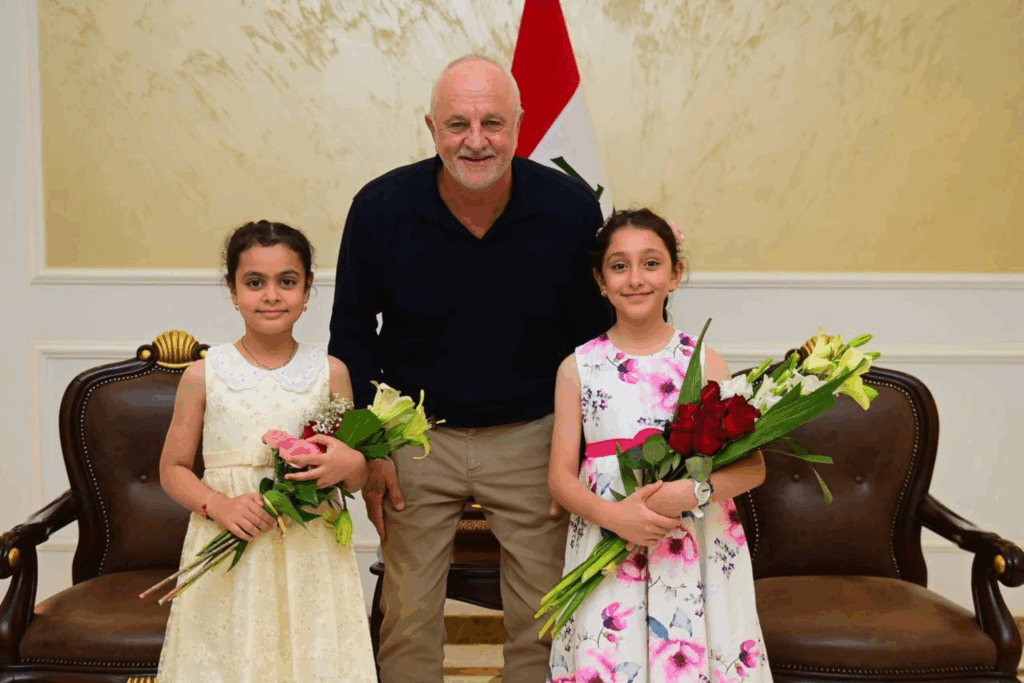
After mentoring goal kickers at Rugby League club South Sydney Rabbitohs over the past couple months, Arnold’s new challenge is now with Iraq.
Compared to the difficulty the Iraq FA faced over the termination of Casas’ contract, the talks with the Australian over his contract had been pretty straightforward, with no inclusion of a penalty or release clause. Sources have indicated that the Iraq FA can terminate his contract at any moment and without any financial obligations.
Arnold had agreed to all terms and financial matters were neither an obstacle nor a priority for him.
The Australian’s motivating factor for taking the job was the challenge. In talks between the Iraq FA president and Graham Arnold it became clear to the Iraq FA that the coach wasn’t interested about the money, but it was the challenge of leading Iraq to the World Cup that drew him to the job. In the negotiations, the coach spoke primarily about the team, the players, the preparations, and what he needed to qualify for the World Cup.
For the Australian, the most important thing is that he wanted a new challenge and believed that Iraq and getting the Lions of Mesopotamia to the 2026 World Cup is that challenge.
There has been a lot of negativity and pessimism surrounding Arnold’s appointment. The Iraq FA has decided to go completely left field from ex-coach Jesús Casas, with the type of coach and the style of play, but at this moment in time, Arnold looks like the kind of coach Iraq needs.
He is a strong character, who doesn’t care much about what his critics say, either in the media or on social media, and more importantly, he understands the difficult situation Iraq is in, and there aren’t many coaches in international football with his kind of experience. When it comes to World Cup qualification, he’s been there and done that, something which Iraq have not done for the past 40 years. Iraq have two cup finals to play in less than a month.
Iraq have two crucial qualifiers to play and don’t have a lot of time to prepare. After the surprise 2-1 defeat to Palestine in Amman in March, the new coach will have to try and psychologically pick up the players and motivate and inject belief in them that they can achieve victory in their final two group games to qualify for the 2026 World Cup.
If the Australian can achieve it then he will go down as a national hero.


